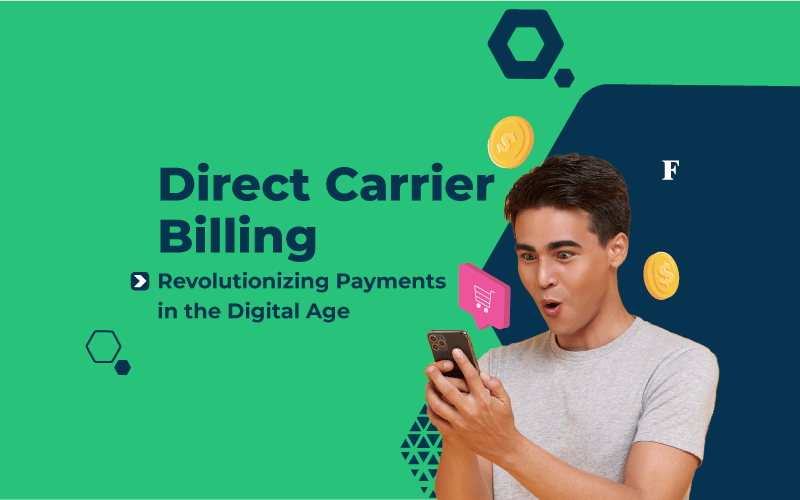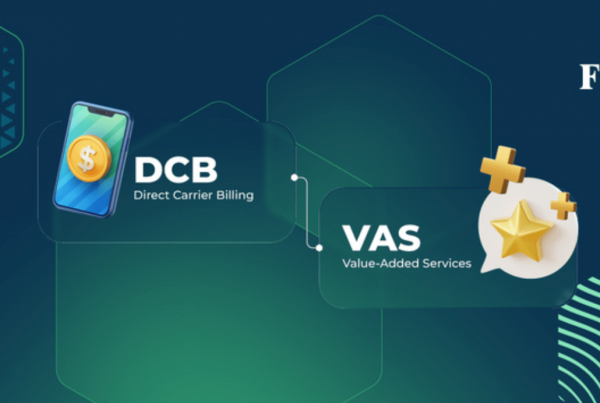
In today’s fast-paced digital landscape, convenience reigns supreme. From ordering groceries to streaming movies, consumers demand seamless transactions at their fingertips. Direct Carrier Billing (DCB) emerges as a transformative force in this realm, offering a frictionless payment method that reshapes how people engage with digital content and services. According to Boku, a leading DCB provider, 83% of consumers are more likely to make a purchase if DCB is offered as a payment option, highlighting its importance in driving conversions and increasing revenue
Understanding Direct Carrier Billing: Simplifying Transactions
DCB or Direct Carrier billing simplifies the payment process by allowing users to charge purchases directly to their mobile phone bill. Gone are the days of entering credit card details or creating accounts on multiple platforms. With DCB, a few taps on a smartphone enable instant transactions, making it an ideal solution for impulse purchases and microtransactions.
The Universality of Direct Carrier Billing: Accessible to All
One of the key advantages of DCB is its universality. Unlike traditional payment methods that require bank accounts or credit cards, DCB leverages existing mobile phone subscriptions. This accessibility democratizes digital transactions, empowering users without access to traditional banking services to participate in the digital economy. According to data from the World Bank, there are over 1.7 billion unbanked adults globally, representing a significant market opportunity for businesses that embrace DCB.
Enhanced Security and Trust
Moreover, DCB enhances security by minimizing the exposure of sensitive financial information. Instead of sharing credit card details with multiple vendors, users only need to trust their mobile service provider. This reduces the risk of identity theft and fraud, fostering trust and confidence in online transactions.
Versatility Across Industries
The versatility of DCB extends beyond digital goods and services. It has found applications in various industries, including gaming, entertainment, and charitable donations. Mobile gaming companies leverage DCB to monetize in-game purchases seamlessly, while streaming platforms offer premium content through this payment method.
Empowering Financial Inclusion
In emerging markets, where smartphone penetration outpaces traditional banking infrastructure, DCB serves as a gateway to financial inclusion. By enabling transactions through feature phones and smartphones alike, DCB bridges the digital divide, empowering individuals to participate in the global marketplace.
Driving Revenue Growth with Seamless Transactions
Furthermore, DCB facilitates impulse purchases, driving revenue growth for businesses. Its seamless integration into the mobile user experience eliminates checkout friction, leading to higher conversion rates and increased customer satisfaction. Whether it’s downloading a new app or accessing exclusive content, DCB streamlines the path to purchase.
Challenges and Considerations in Implementation
Despite its many benefits, DCB faces challenges, including regulatory scrutiny and consumer protection concerns. Regulatory bodies are tasked with ensuring transparency and preventing abuse, striking a balance between innovation and consumer rights. Additionally, educating users about responsible spending and safeguarding personal data is paramount to maintaining trust in DCB systems.
The Future of Direct Carrier Billing: Innovations and Opportunities
Looking ahead, the future of DCB is promising. As mobile usage continues to surge globally, DCB will play a pivotal role in shaping the digital economy. Innovations such as enhanced security features, interoperability between service providers, and integration with emerging technologies like blockchain will further enhance the utility and adoption of DCB.



